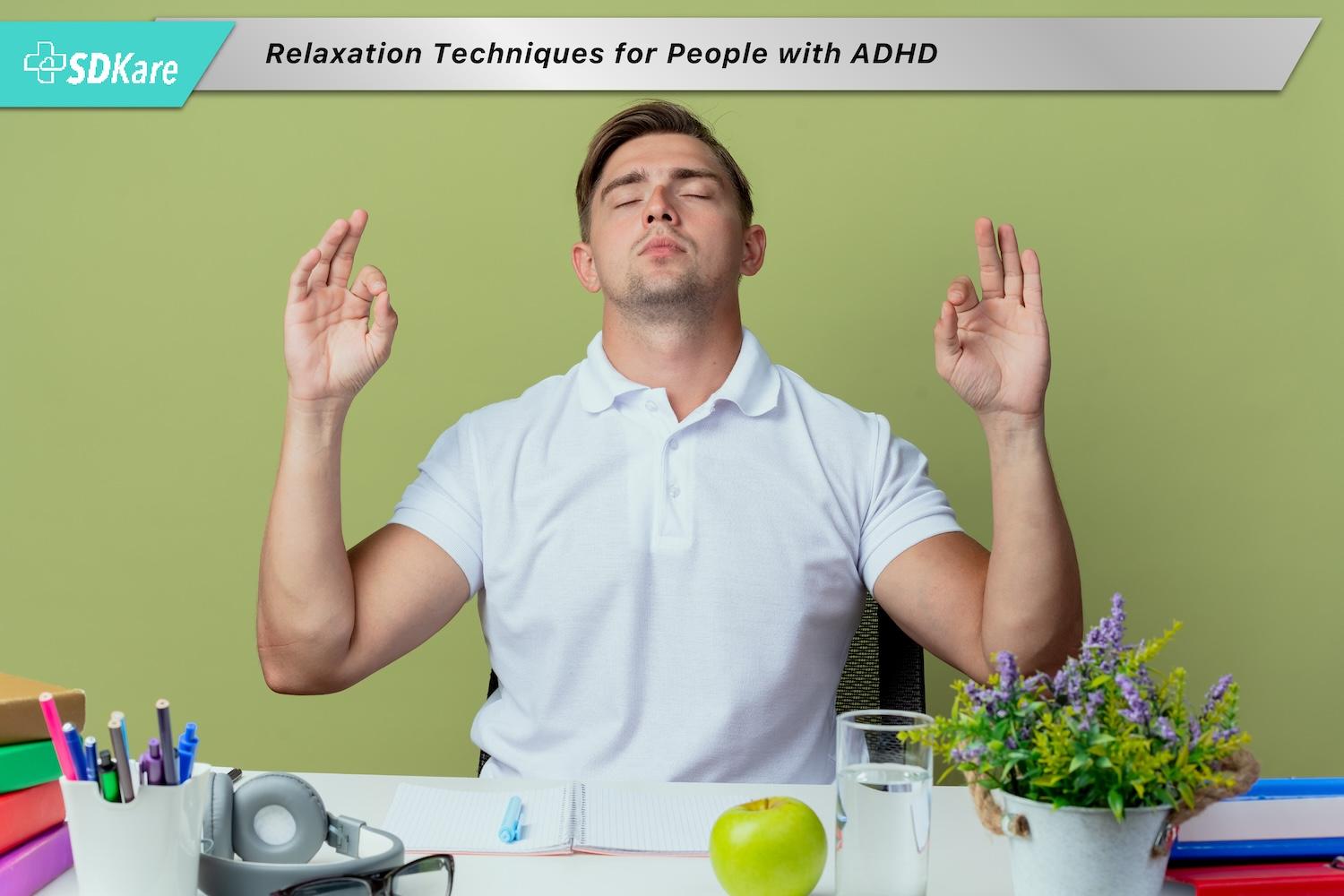One of the most commonly asked questions is how to treat ADHD while maintaining a sense of calm. Living with ADHD presents unique challenges that require proactive strategies for effective management. This article explores various active relaxation techniques tailored to help individuals with ADHD find peace and focus. By incorporating these strategies, you can embrace a more serene and centered lifestyle while addressing the broader question of how to treat ADHD effectively.
Relaxation techniques play a crucial role in managing and alleviating the challenges associated with ADHD.
- Firstly, individuals with ADHD often experience heightened levels of stress, anxiety, and sensory overload. Therefore, implementing regular relaxation techniques provides a valuable means of promoting mental well-being and emotional balance.
- Secondly, these ADHD calming techniques, ranging from mindfulness practices to deep breathing exercises, offer a structured approach. By incorporating relaxation into daily routines, individuals with ADHD can enhance their ability to focus, regulate emotions, and cope with the demands of daily life. Overall, the addition of these techniques becomes pivotal in establishing a comprehensive and sustainable strategy for managing ADHD-related challenges.
Moreover, these calming techniques for ADHD provide a constructive outlet for excess energy, helping to mitigate restlessness and impulsivity commonly associated with ADHD. Overall, relaxation techniques contribute significantly to the overall well-being of individuals with ADHD, fostering a sense of calm, stability, and improved mental clarity.
Understanding the Importance of Relaxation:
Individuals with ADHD often contend with heightened stress levels and sensory overload. Therefore, actively incorporating calming activities for ADHD into daily routines becomes essential to counteract these challenges effectively. From mindfulness practices to engaging in physical activities, a diverse range of options exists to cultivate a sense of calm and focus.
Mindful Breathing Techniques:
Begin your journey to peace with the simplicity of mindful breathing. To engage in this powerful relaxation for ADHD technique, focus on each breath, providing an anchor to the present moment and promoting mental clarity. Inhale deeply through your nose, exhale through your mouth, and repeat this process for a few minutes to center and reset your mind.
Engaging in Physical Activities:
Exercise stands out as a potent tool for managing ADHD symptoms. Regular physical activity releases endorphins, the body’s natural stress relievers, and enhances cognitive function. Activities such as jogging, yoga, or a brisk walk contribute significantly to reducing restlessness and fostering relaxation.
Sensory-Focused Relaxation:
Crafting a sensory-friendly environment proves remarkably beneficial for individuals with ADHD. To enhance this approach, integrate sensory tools like stress balls, fidget spinners, or textured items into your surroundings as calming activities for ADHD. By doing so, these items provide tactile stimulation, offering effective outlets for nervous energy.
Incorporating Nature into Your Routine:
Nature serves as a powerful ally in soothing the mind. Calming techniques for ADHD such as a stroll in the park, gardening, or simply spending time outdoors, provides a therapeutic escape. The calming effects of greenery and fresh air significantly contribute to stress reduction and improved focus.
Exploring Calming Hobbies:
Explore the therapeutic benefits of engaging in calming hobbies that align with your interests and passions. For instance, calming activities for ADHD adults could include painting, playing a musical instrument, or practicing mindfulness through activities like knitting. This personally resonant hobby can offer a welcome escape and foster a sense of accomplishment.
Creating a Relaxation Routine:
Consistency plays a pivotal role in relaxation techniques for ADHD. By establishing a daily relaxation routine, you create predictability and stability in your life. Dedicate a specific time each day to your chosen calming activities, ensuring they become integral components of your schedule.
Professional Support and Resources:
While these relaxation techniques prove immensely beneficial, it’s crucial to seek professional support. Consult healthcare professionals, providers, or ADHD coaches for personalized guidance and calming activities for ADHD as per your specific needs.
In conclusion, the pursuit of effective calming activities for ADHD is a valuable journey for individuals with ADHD. From mindful breathing to engaging in physical activities and exploring calming hobbies, a variety of options exists. By adding ADHD calming techniques into your daily routine you can cultivate a greater sense of calm, focus, and overall well-being in your life.





